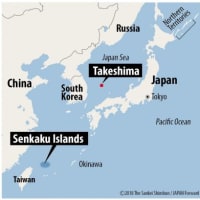
What Abolitionists Get Wrong About U.S. Nuclear Deterrence:
Key supporters of a strong nuclear deterrent policy have concluded that the United States’ deterrence requirements have changed, necessitating careful analysis and even new investments in nuclear arms.
I would like tentatively to share the commentary by Mr. Peter Huessy, President of Geostrategic Analysis & Senior Fellow at the Hudson Institute.
The good news is the Biden administration has reportedly rejected a No-First-Use policy due in large part to opposition from U.S. NATO allies. The reason is understandable: NATO’s conventional balance remains relatively weak, and twenty-seven of the thirty NATO members pledged under the 1969 Nuclear Nonproliferation Treaty not to build nuclear weapons of their own. But the bad news is that the conventional military imbalance can only be partially remedied through NATO members fulfilling their long-standing pledge to spend at least 2 percent of their GDP on defense.



















